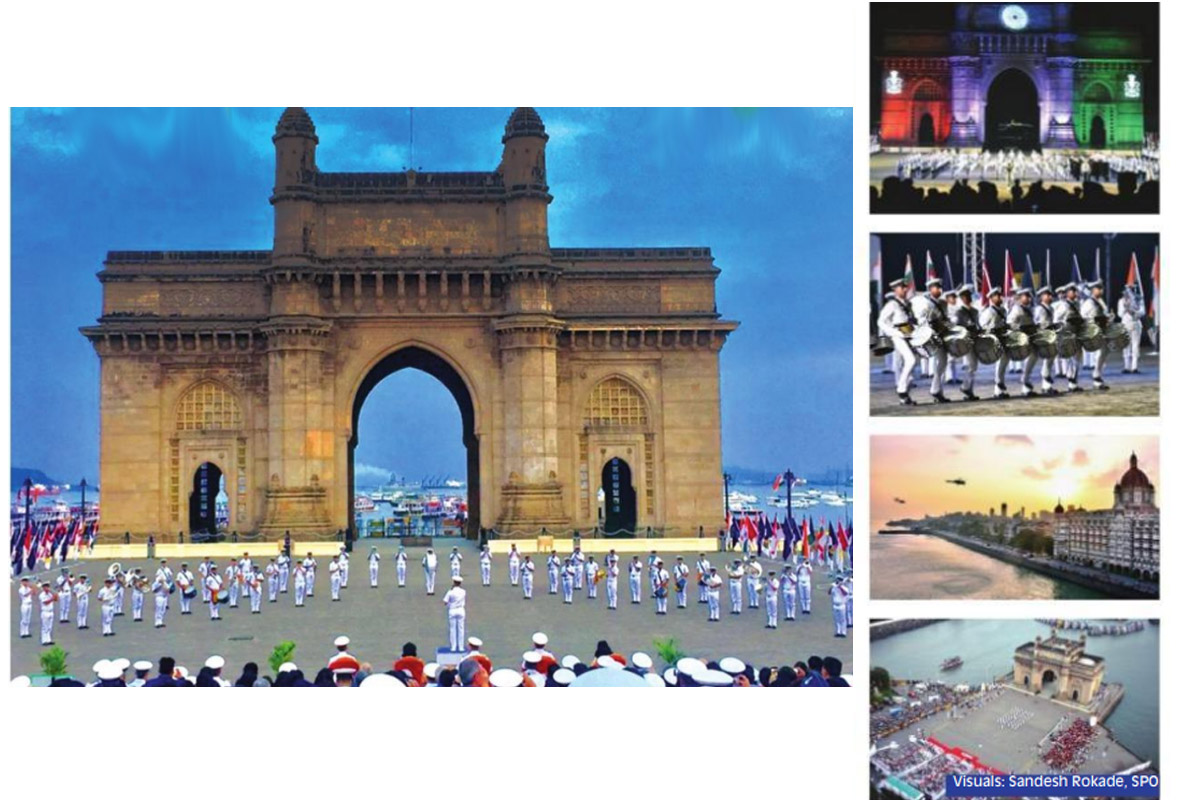Brahmastra veterans meet at Panagarh military station
Under the aegis of the Indian Army’s Eastern Command, Brahmastra Corps organised the Brahmastra Veterans Meet on Sunday at Panagarh Military Station.
Navy Day, 4 December, is observed every year in commemoration of Op-Trident and the glorious victory of the Indian Navy during the Indo-Pakistan war in1971. A report on this year’s parade.

Visuals: Sandesh Rokade, SPO
The year was 1971. PAK Air Force already made a surprise aerial intrusion into the Indian Airspace and made offensive strike on multiple IAF bases, triggering noting damage to the force. Indo-Pak bilateral relations were on high-tension. Exactly, the time when the PAK Army was engaged in combat against the Mukti Bahini (Bengali Guerrilla freedom fighters) and a Battalion size detachment of the Indian Army in the Battle of Garibpur as part of the Bangladesh Liberation War.
And, at that point of time in 1971, the Port of Karachi housed the HQ of the PAK Navy and almost its entire fleet was based in Karachi Harbour. Since Karachi was also the hub of Pakistan’s maritime trade, a blockade would be disastrous for Pakistan’s economy. The security of Karachi Harbour was predominant to the Pakistani High Command and it was heavily defended against any air or naval strikes. The port’s airspace was secured by the strike aircraft based at airfields in the area. It was that crucial to that nation.
Advertisement
Towards the end of 1971, there was rising tension between India and Pakistan, and after Pakistan declared a national emergency on 23 November, the Indian Naval Headquarters (NHQ) in Delhi, along with the Western Naval Command, planned to attack the Port of Karachi. A strike group under WNC was formed for the mission – Op-Trident.
Advertisement
Navy Day is observed every year in commemoration of Op-Trident and the glorious victory of the Indian Navy during the Indo-Pakistan war in 1971. As part of the gala celebrations this year, the traditional ‘Beating Retreat and Tattoo Ceremony’ was held at the Gateway of India, Mumbai. Governor of Maharashtra, Bharat Singh Koshyari was the chief guest for the momentous occasion hosted by Vice Admiral Ajit Kumar, the Flag Officer Commanding-in-Chief Western Naval Command.
The event was graced by senior officers from various organisations, dignitaries, special guests and serving naval personnel veterans and their families. The highlights of the event included breathtaking performances by the Naval Band, an Op-Demo Display, Beating Retreat Ceremony, Fly-past by Naval helicopters based at Naval Air Station, INS Shikra, Continuity drill by Naval personnel and Sailor’s Hornpipe dance by the Sea Cadet Corps.
As a first, this year the Russian Navy’s Black Sea Fleet band also participated and enthralled the audience with their song and dance ensemble. The ‘Beating Retreat’ ceremony has been a tradition since the early days of military history. In earlier times, the Retreat was sounded every day as a signal to the troops to disengage from combat as daylight faded, ordering them to withdraw to the confines of their encampment for the night.
Since then, the ceremony of ‘Beating Retreat’ has become an integral part of military traditions. The custom of ‘Tattoo Ceremony’ includes beating drums within the billets, ordering them to proceed to their quarters after a long day at the battlefield. The ‘Continuity’ drill performance by the ‘Nauveers’ of 22nd Missile Vessel Squadron was spectacular and mesmerizing, as the entire drill sequence was executed without a single word of command.
The purpose of performing drill in immaculate turnout in the military is to inculcate essential qualities of military bearing, pride in oneself, implicit obedience of orders and above all, to instill unity of purpose and ‘espirit-de-corps’. The Naval aviators with their flying machines displayed clockwork precision manoeuvres.
Special helicopter-borne operations were undertaken by Westland Seaking Charlie helicopters and the fly-past drew a grand applause from the large gathering all around the Gateway of India. The dare-devilry and grit of the famed MARCO – Marine Commandos of the Navy was aptly on display in an exciting extraction sequence executed from atop the Gateway of India, while the delightful Hornpipe dance by the young cadets of the Sea Cadet Corps was a crowd pick of choice. Later in the evening, the traditional ‘At Home’ reception was hosted by the Flag Officer Commanding-in-Chief, Western Naval Command at the Navy House.
Advertisement